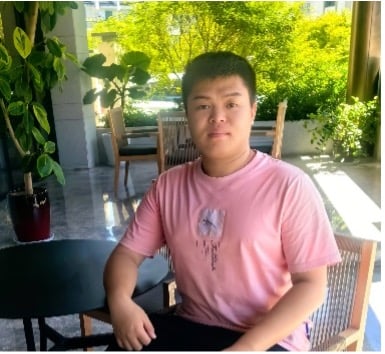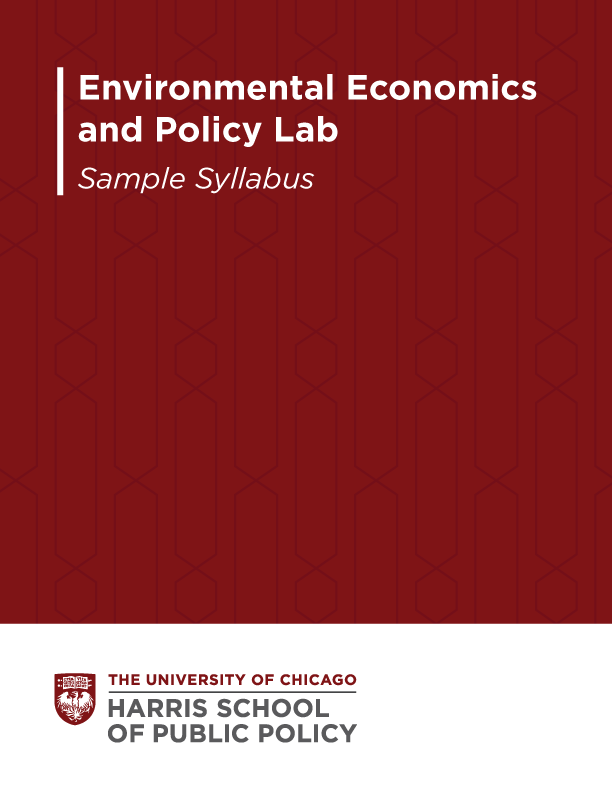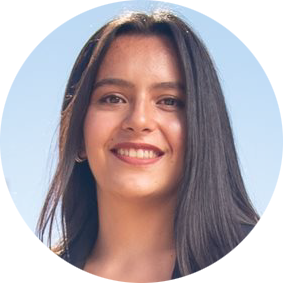The Environmental Economics and Policy Lab (EEPL) is a course for undergraduate students, graduate students, and working professionals interested in environmental economics and energy policy areas. It’s taught by faculty from the University of Chicago Harris School of Public Policy with field visits and networking opportunities in Beijing, China.

|
|
Environmental Economics, Environmental Policy, Energy Policy |
|
|
Beginner, Intermediate |
|
|
2 weeks, 15-20 hours per week |
|
|
July 27 - August 7, 2026 |
|
|
$3,000 with various discount types |
|
|
In-person at the Peking University campus in Beijing, China |

Assistant Professor at the Harris School of Public Policy
“I gained deeper understanding of environmental economics concepts and tools—market failures, externalities, and methods like VSL, Diff-in-Diff, and regression discontinuity—while previously seen examples became clearer through the professor’s explanations.”

EEPL’25, student at UC Berkeley
“I work in energy transition and urban planning, with projects across the UK, Southeast Asia, and China. Professor Wang’s insights on environmental history, economics, and carbon markets deepened my passion for this field and equipped me to apply economic thinking to sustainable urban development.”

EEPL’25
“What stood out most was Professor Wang’s teaching. His clear explanations on environmental economics, externalities, taxes, cap-and-trade, public goods, and policy evaluation, along with guidance on cutting-edge energy issues, greatly enriched my learning.”

EEPL’25, student at Central University of Finance and Economics
This course studies the application of economic analysis to the management of the environmental and natural resources. We will consider the role of economic theory in understanding and solving environmental and energy problems and discuss empirical examinations of the theory. Policy implications will be addressed with particular attention paid to data analyzing and environmental quality valuation.
Topics are introduced in the context of real-world environmental and energy policy questions, then translated into the microeconomic theory to highlight the salient constraints and fundamental trade-offs faced by policymakers. You will conduct a policy analysis in groups with feedback from faculty as the program capstone project. In addition, you will visit related organizations to expand your network and career exploration.
This program is a fit if you:



Instructor Profile
Shaoda Wang is an Assistant Professor at the University of Chicago Harris School of Public Policy, and a Faculty Research Fellow at the National Bureau of Economic Research (NBER). He also serves as the Deputy Faculty Director at the Energy Policy Institute at UChicago, China center (EPIC-China).
Shaoda is an applied economist with research interests in development economics, environmental economics, and political economy. His main research agenda aims at understanding the political economy of public policy, with a regional focus on China.
Shaoda holds a BA from Peking University, and a Ph.D. from the University of California, Berkeley. Prior to joining Harris, he was a Postdoctoral Scholar in the Department of Economics and Energy Policy Institute (EPIC) at the University of Chicago.
Check Shaoda's Curriculum Vitae and part of his publications:July 27 - August 7, 2026
15-20 hours per week
The program will be delivered fully in-person at the Peking University campus in Beijing, China.
Issued by Peking University and University of Chicago Harris School of Public Policy to showcase your academic rigor.
All courses have office hours with faculty and graduate teaching assistants, conducted in-person. You will also leverage a virtual discussion board for quick communication with peers and teaching assistants.
PKU–UChicago Summer School participants may apply for on-campus accommodation at PKU Global Village (opposite the PKU East Gate) for the duration of the program. Please note that availability is limited and rooms are allocated on a first-come, first-served basis.
Successful applicants will be assigned to 1-, 2-, or 3-bedroom apartments, with one student per bedroom, and a shared living room and shared bathroom. Air conditioning and cable internet are available.
Fees
Deposit: 500 RMB
Room rate: 120–220 RMB per person per night
Payment for housing must be made at the reception desk upon check-in.
Please note that participants’ lodging, meals, travel expenses, health insurance, local transportation, visa application fees, and other personal expenses are not included in the program fee.
PKU Global Village Details
Check-in: Reception Desk, Building No. 1
Address: No. 126 North Zhongguancun Street, Haidian District, Beijing
(Approximately a 10-minute walk to PKU main campus)
Phone: +86-10-6275-2288
Website: http://pkugv.pku.edu.cn/ (in Chinese)
International participants not living in on-campus housing or a hotel must, according to Chinese law, register at their local police station within 24 hours of arriving in the country. When registering, participants must provide their exact address as well as a telephone number.
“I really enjoyed the program! The learning process was great, as the class integrated real-world examples in policymaking, had a detailed curriculum, and included data-oriented graphs and information. My biggest takeaway from EEPL was the combination of classroom learning and experiential learning outside, being able to experience one of the biggest and most amazing cities in the world at a top university in the country.”

EEPL’23, MA Candidate at the University of New Mexico
"What attracts me most about EEPL is that it not only teaches environmental economics, allowing everyone to think about environmental issues like an economist, but also provides cases from the latest research papers and uses economic models to analyze reality. Meanwhile, Prof. Wang is very accomplished in research in this field. I read his articles before EEPL and enjoyed communicating with him in class.”

EEPL’23, student at Tsinghua University
“Professor Wang impressed me with his clear, engaging teaching linking concepts to real cases, especially on vehicle taxes and subsidies. Field visits to the China Meteorological Administration revealed how environmental economics closely shapes real-world systems and decisions.”

EEPL’25, student at Shandong University
The program fee is $3,000. We offer partial discounts to early action applicants, PKU and UChicago community members. In addition, we support applicants to explore funding sources from your academic institution, employer, or external scholarships.
|
Audience |
Fee |
|
General Applicant |
$3,000 |
|
Early Action Applicant |
$2,700 |
|
Current PKU / UChicago students or alumni |
$2,300 |
|
Organizational Sponsorship for 3+ Applicants |
Contact us at harriscredential@uchicago.edu to discuss group |
|
If enrolling in two or more credential programs during the same cycle |
Receive an additional 20% discount on the program fees (After the initial discounts and scholarships) |
Once being admitted, participants will secure the seat by submitting a $1,000 USD enrollment deposit, which is non-refundable and applies toward your total program fee. The remaining program fee balance will be paid before the program starts. Detailed payment instructions will be provided to admitted participants via email.
Eligible applicants may be considered for the Community Impact Scholarship, which provides $500 to EEPL participants. The scholarship application is included in the EEPL application and awards are determined at the time of admission. Please note that recipients of the Community Impact Scholarship will not be considered for additional discounts.
|
|
Application Deadline |
Notification |
Reply Deadline |
|
Early Action |
December 2, 2025 |
Mid-December |
December 30, 2025 |
|
Round 1 |
January 20, 2026 |
Early February |
February 17, 2026 |
|
Round 2 |
March 10, 2026 |
Late March |
April 14, 2026 |
|
Round 3 |
April 21, 2026 |
Mid-May |
May 19, 2026 |
|
Round 4 |
May 19, 2026 |
Late May |
June 2, 2026 |
If the participant decides to cancel their Program enrollment, the participant must submit a request in writing at least 30 days prior to the program start date to harriscredential@uchicago.edu to receive the paid amount less the non-refundable enrollment deposit. Requests received 14 to 30 days before the Program start date are subject to a payment of 50% of the Program fee. Requests received within 14 days of the Program start date are subject to full payment of the Program fee. If the participant is unable to join the Program due to circumstances that the participant has no control or influence over, the refund amount will be considered on an individual case-by-case basis.
EEPL content is rigorous, but we accommodate participants of all backgrounds. There are no prerequisites for this program. Our aim is to provide support and guidance to help you succeed, regardless of your prior experience.
For participants who need accommodation support, we provide on-campus housing at the PKU Global Village (opposite PKU east gate) for the duration of the program. The dormitories are consisted of two or three bedrooms (one student occupies one room) with a shared living room and shared bathroom. Please note that vacancy is limited and on first-apply first served basis, and the housing fee is not included in the program fee. Details regarding the accommodation application will be provided to admitted students.
Participants will be given a PKU Student ID Card that allows you to enjoy a variety of cuisine in the campus dining halls. The card will also allow you to get access to the campus library.
The program is a non-credit program. You will receive a shareable certification from Peking University and the University of Chicago Harris School of Public Policy upon completion to showcase your academic rigor after successfully completing the program.
The program fee is $3,000. We offer partial discounts to early action applicants, PKU and UChicago community members.
Eligible applicants may be considered for the Community Impact Scholarship, which provides $500 to EEPL participants. The scholarship application is included in the EEPL application and awards are determined at the time of admission. Please note that recipients of the Community Impact Scholarship will not be considered for additional discounts.
For more financial tips, please read the blog "Financial Planning for Credential Programs".
Please feel free to reach out to us at harriscredential@uchicago.edu. You can also book a 20-minute online appointment with the admissions team to talk through your questions directly.